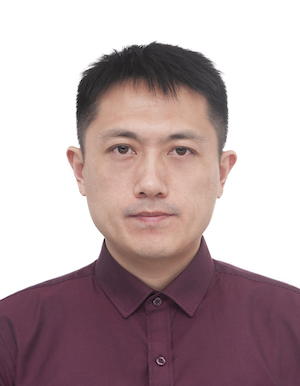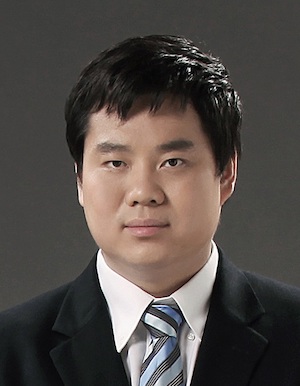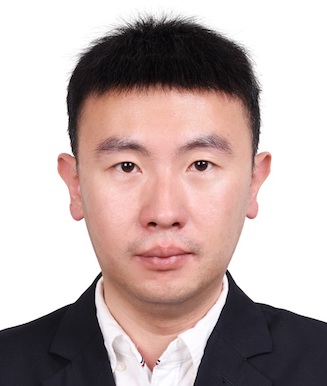Physical Layer Security 2.0: Emerging Wireless Security Solutions for Future IoT
ID: Tut-09
Description
The massive deployment of IoT makes information security unprecedentedly important. Physical layer security (PLS) is a wireless security solution which exploits intrinsic features of wireless channels to degrade the signal quality of eavesdroppers and realizes security via signal processing approaches. While extensive studies have been conducted in this area during the past decades leading to fruitful achievements, multiple fundamental problems have not been well addressed, which hinders practical adoption of PLS techniques in IoT-related applications. In this tutorial, we would like to introduce a new concept called PLS 2.0. Compared to the existing PLS research paradigm, referred to as PLS 1.0, the PLS 2.0 has three innovations. First, as opposed to existing PLS solutions which follow a heuristic design philosophy, a novel secure transmission architecture is developed, which combines PLS techniques and cryptographic primitives to achieve a provable security level. Second, a series of new PLS techniques will be presented in this tutorial. The mainstream PLS solutions, e.g., artificial noise and cooperative jamming, realize security at the cost of additional energy consumption or increased hardware complexity, which is not feasible for IoT. Different from this paradigm, we will introduce several lightweight PLS techniques including fountain-coding aided methods and the noise aggregation approaches. Finally, we will highlight the application perspective of PLS. While plenty of papers have been published in the PLS research field, most studies aimed at solving anti-eavesdropping problems. However, current cryptographic approaches are competent for accomplishing this, which makes PLS techniques less attractive to IoT. To bridge the gap between theory and practice, in this tutorial we would like to introduce three IoT-related scenarios where higher-layer encryption techniques do not work. The scenarios include: Fast device identification and authentication in IoT, secure ranging for contactless car entry, and privacy protection for wireless sensing. For each scenario, we will show how PLS techniques can be utilized to realize low-complexity authentication, integrity protection, and privacy enhancement.
If you have any questions, please contact Dr. Li Sun: sunli50@huawei.com
Chairs
Wei Xu, Southeast University, China
Wei Xu received his B.Sc. degree in electrical engineering and his M.S. and Ph.D. degrees in communication and information engineering from Southeast University, Nanjing, China in 2003, 2006, and 2009, respectively. Between 2009 and 2010, he was a Post-Doctoral Research Fellow at the University of Victoria, Canada. He was an Adjunct Professor of the University of Victoria in Canada from 2017 to 2020, and a Distinguished Visiting Fellow of the Royal Academy of Engineering, U.K. in 2019. He is currently a Professor at Southeast University. His research interests include information theory, signal processing, physical-layer security, and machine learning for wireless communications. Dr. Xu received the Youth Science and Technology Award of China Institute of Communications in 2018, the Science and Technology Award of the Chinese Institute of Electronics (Second Prize) in 2019, the National Natural Science Foundation of China for Outstanding Young Scholars in 2020, the IEEE Communications Society Heinrich Hertz Award in 2023, and the Best Paper Awards at IEEE Globecom 2014, IEEE ICCC 2014, ISWCS 2018, and WCSP 2017, 2021. He served as an Editor of IEEE Communications Letters from 2012 to 2017, and an Editor of IEEE Transactions on Communications from 2018 to 2023. He is a Senior Editor of IEEE Communications Letters. He is a Fellow of IET.
Qinghe Du, Xi’an Jiaotong University, China
Qinghe Du received the B.S. and M.S. degrees from Xi’an Jiaotong University, China, and the Ph.D. degree from Texas A&M University, USA. He is currently a Professor with School of Information and Communications Engineering Department, Director of Institute of Wireless Communications Technologies, Xi’an Jiaotong University. His research interests widely cover the area of wireless communications and networking with emphases on 5G/6G evolution technologies, physical-layer technologies, information security, statistical QoS provisioning, IoT, and big data over wireless networks. He has published over 100 technical papers. He received the Best Paper Awards of IEEE GLOBECOM 2007, China Communications 2017 and 2020, IEEE COMCOMAP 2019, and IEEE/CIC ICCC 2021, respectively. He serves and has served as an Associate Editor of IEEE COMMUNICATIONS LETTERS, an Area Editor of KSII Transactions on Internet and Information Systems, an Editor of Electronics. He has served in Executive committees and as TPC members for numerous international conferences, and he was recognized as the Distinguished Member of Technical Program Committee in IEEE INFOCOM 2017.
Li Sun, Huawei Technologies, China
Li Sun received the B.S. and Ph.D. degrees in Information and Communications Engineering from Xi'an Jiaotong University, China, in 2006 and 2011, respectively. He is currently a Senior Expert in Wireless Technology Lab, 2012 Labs, Huawei Technologies, where he is leading the physical layer security research. Prior to joining Huawei, he has been with Xi’an Jiaotong University as a professor and the Deputy Director of Wireless Communications Institute. His research interests include physical layer security and wireless AI. He has published over 150 papers and has more than 60 granted patents. He received the IEEE Communications Letters Exemplary Reviewers Certificate from IEEE Communications Society (2013 and 2016), the Best Paper Awards of China Communications (2017 and 2020), the Best Paper Award of the IEEE ICCCS (2023), the Outstanding Scientific Paper Award of Shaanxi Province of China (2016), the Outstanding Master Thesis Supervisor Award of Chinese Institute of Electronics (2021), the First Price of the Teaching Achievement Award of Shaanxi Province of China (2018), and the Innovation Pioneer Award at Huawei (2022 and 2023).


























